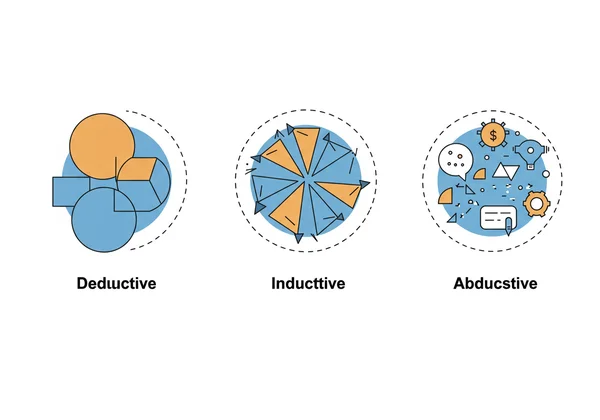Mastering Logical Reasoning Aptitude Tests: Your Guide
July 27, 2025 | By Donovan Blackwood
That crucial job interview is on the horizon, or perhaps you're applying for a competitive academic program. Suddenly, you're faced with a common hurdle: the logical reasoning aptitude test. How do I prepare for an aptitude test and what should I expect? If this question is on your mind, you've come to the right place. These tests are designed to evaluate your problem-solving abilities, but with the right strategies, you can turn this challenge into an opportunity to showcase your strengths.
This guide will demystify the logical reasoning test, providing you with expert strategies and actionable practice. We will explore what these assessments measure, why they are so important in today's job market, and how you can prepare effectively. Ready to unlock your potential? A great first step is to see where you stand with a free online aptitude test.
What is a Logical Reasoning Aptitude Test?
A logical reasoning aptitude test is a standardized assessment used by employers and institutions to measure a candidate's ability to think logically and solve complex problems. Unlike tests that measure your knowledge or education, these assessments focus on your innate cognitive abilities. They evaluate how you analyze information, identify patterns, and draw sound conclusions from a set of premises or rules.

These tests are a core component of many pre-employment screenings because they are powerful predictors of job performance. An individual who excels at logical reasoning is likely to be a strong decision-maker, an efficient problem-solver, and capable of adapting to new challenges. This is why you'll frequently encounter them when applying for roles in fields like IT, finance, management consulting, and engineering.
Understanding Common Logical Reasoning Question Types
To succeed, it's essential to first understand the structure and common types of questions. Logical reasoning tests come in several formats, each designed to assess a slightly different facet of your logical prowess. Familiarizing yourself with these question types is the first step toward mastery.
-
Deductive Reasoning: This involves reaching a guaranteed conclusion from a given set of premises. It's about applying general rules to specific instances. For example: "All cats have tails. Fluffy is a cat. Therefore, Fluffy has a tail."
-
Inductive Reasoning: Here, you identify trends or patterns to form a hypothesis or likely conclusion. The conclusion isn't guaranteed but is probable based on the evidence. This is often seen in abstract reasoning questions with shapes and patterns.
-
Abductive Reasoning: This type involves finding the most plausible explanation for an incomplete set of observations. It's the logic detectives use—finding the best fit for the available evidence.

Why Employers Use Logical Reasoning Assessments
Employers aren't just trying to give you a difficult puzzle. They use these assessments, often as part of a job aptitude test, for very specific reasons. Strong logical reasoning is a cornerstone of effective performance in almost any role. It signals that a candidate can process information objectively, think critically under pressure, and devise effective strategies.
For an HR professional, a candidate who scores well on a logical reasoning test is a safe bet. It suggests they can learn quickly, handle complex tasks, and make data-driven decisions rather than relying on gut feelings. This makes it a crucial tool in the pre-employment aptitude test process to identify top talent.
Proven Strategies for Aptitude Test Practice & Success
Excelling in a logical reasoning test isn't about innate genius, but rather about strategic preparation and targeted practice. Like any skill, your logical abilities can be sharpened with focused aptitude test practice and smart strategies. It’s time to move beyond hoping for the best and start building a reliable method for success.
A key part of your preparation should involve taking a career assessment aptitude test to establish a baseline. Understanding your current strengths and weaknesses will help you focus your efforts where they are needed most.
Deconstructing Logical Patterns and Identifying Key Information
The core of every logical puzzle is a pattern or rule. Your primary task is to uncover it. Whether you're looking at a sequence of numbers, a series of shapes, or a paragraph of text, stop and analyze the components. Ask yourself: What is changing? What is staying the same? Is there a repeating sequence, a rotation, or a relationship between elements?
Mastering these test-taking skills means training your brain to ignore irrelevant details and zoom in on the core logic. Practice breaking down complex problems into smaller, manageable parts. This systematic approach prevents you from feeling overwhelmed and helps you identify the underlying structure of the question.
Mastering Time Management & Accuracy Under Pressure
Logical reasoning tests are almost always timed, which adds a layer of pressure. Excelling requires a balance between speed and accuracy. Rushing through questions will lead to careless mistakes, while spending too much time on one problem can prevent you from finishing the test.
Practice with a timer to simulate real test conditions. Set a time limit for each question—if you can't solve it within that timeframe, make an educated guess and move on. You can always return to it later if you have time left. This strategy ensures you attempt every question and maximizes your chances of passing aptitude tests.

Practice Questions: Sharpen Your Logical Reasoning Skills
While theoretical understanding is key, applying that knowledge through practice is where significant improvement occurs. Let's walk through some examples that reflect the basic aptitude questions you might encounter. Use these to start training your logical muscles.
Numerical Logic & Sequence Practice
Numerical reasoning questions test your ability to see relationships between numbers. They often appear in assessments that measure your numerical ability test skills.
- Example: What is the next number in the sequence: 5, 10, 20, 40, ?
- Logic: Each number is double the previous one (5 x 2 = 10, 10 x 2 = 20, etc.).
- Answer: 80.
Abstract & Diagrammatic Reasoning Challenges
These questions use shapes and symbols to test your ability to identify patterns without relying on words or numbers. This is a pure test of your abstract reasoning capabilities.
- Example: Imagine a series of squares. The first square has a dot in the top-left corner. The second has it in the top-right, the third in the bottom-right. Where will the dot be in the fourth square?
- Logic: The dot is moving clockwise from corner to corner.
- Answer: In the bottom-left corner.
Verbal Logic & Critical Thinking Scenarios
Verbal logic tests your ability to understand and evaluate arguments. These are crucial for any role that requires strong critical thinking.
- Example: Statement: "If it is raining, the ground is wet. The ground is wet." Can you conclude that it is raining?
- Logic: Not necessarily. The ground could be wet for other reasons (e.g., sprinklers). This is a common logical fallacy.
- Answer: No.
Beyond Practice: Maximizing Your Overall Potential
Simply practicing questions is a great start, but to truly stand out, you need to understand the bigger picture. This means leveraging modern tools to gain deeper insights into your cognitive profile and how it aligns with your career goals.
Leveraging Online Aptitude Tests for Self-Assessment
The best way to prepare is to experience the real thing. Taking a comprehensive online aptitude test provides a realistic simulation of what employers use. It helps you get comfortable with the format, timing, and pressure. Furthermore, it provides an objective benchmark of your current abilities.
Platforms offering online aptitude tests provide a scientifically designed free aptitude test that can give you immediate feedback on your performance. This is the perfect starting point for any job seeker or student looking to assess their skills and find their strengths.
How Personalized Reports Elevate Your Career Journey
A basic score is useful, but a detailed analysis is transformative. Modern platforms now use AI to go beyond the score, offering personalized reports that unlock a deeper understanding of your potential. These reports can pinpoint your specific cognitive strengths, highlight potential challenges, and even suggest career paths that align with your unique abilities.
Instead of just knowing you're "good at logic," an AI-powered report can tell you that your strength lies in deductive reasoning, making you a great fit for analytical roles. This level of insight transforms a simple test into a powerful career assessment tool, giving you a clear roadmap for professional development.

Your Next Steps to Acing Your Logical Reasoning Test
You are now equipped with the knowledge and strategies to conquer any logical reasoning aptitude test. Remember the key steps: understand the different question types, practice consistently to improve your speed and accuracy, and leverage modern tools to gain a deeper understanding of your cognitive profile.
Take charge of your career path. Take control by understanding your strengths and preparing for the challenges ahead. The journey to unlocking your full potential starts with a single step. Discover your results and see what your mind is truly capable of.
Frequently Asked Questions About Logical Reasoning Tests
How do I prepare for a logical reasoning aptitude test?
The best preparation involves a three-pronged approach: understand the theory behind different logical questions, engage in consistent practice with timed examples, and use online tools. Taking a high-quality online practice test will help you simulate the real environment and identify areas for improvement.
Is a logical reasoning test difficult?
The difficulty is subjective and decreases significantly with familiarity and practice. For those unaccustomed to them, the questions can seem tricky and abstract. However, once you learn to recognize the common patterns and logical structures, the tests become much more manageable. The key is to practice until the process of identifying logic becomes second nature.
What does a logical reasoning aptitude test measure?
It primarily measures your fluid intelligence—your ability to think flexibly and solve novel problems. It assesses your skills in pattern recognition, deductive and inductive reasoning, and critical thinking. It is not a test of your accumulated knowledge but of your raw problem-solving capability.
Can you study for a logical reasoning test?
Yes, absolutely. While you can't "study" in the traditional sense of memorizing facts, you can "train" for it. Studying involves practicing different types of logical puzzles, learning common patterns, and developing effective time-management strategies. The more you practice, the faster and more accurate you will become.